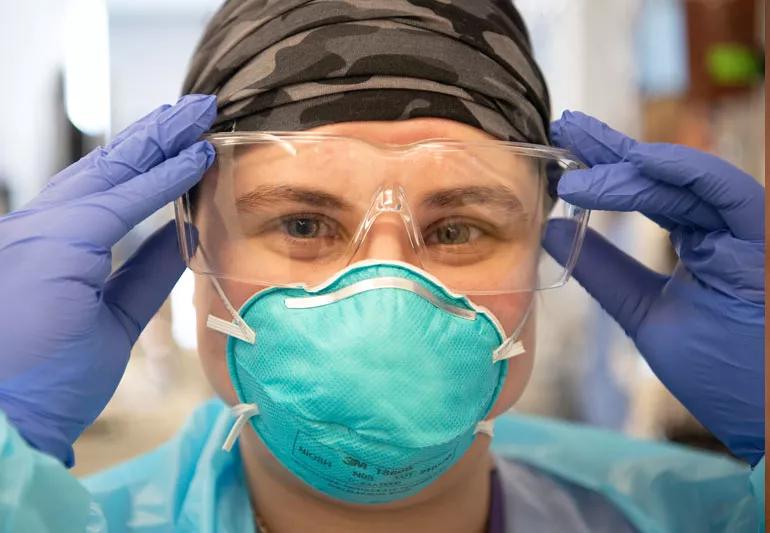Hospitals are taking extra precautions to keep patients safe

Image content: This image is available to view online.
View image online (https://assets.clevelandclinic.org/transform/ac7ebab5-740e-4a12-a34e-ef7b1ba70353/erOpenPPE-CCC-1884966-042320-770x533-1_jpg)
A healthcare provider wearing a camouflage head covering, a face mask and goggles.
With the global COVID-19 pandemic at the center of public attention, it can be easy to forget that all kinds of other medical emergencies, like heart attacks and strokes, are still happening every day. But they are. (Every 40 seconds, someone in the U.S. has a heart attack, according to CDC data.)
Advertisement
Cleveland Clinic is a non-profit academic medical center. Advertising on our site helps support our mission. We do not endorse non-Cleveland Clinic products or services. Policy
Yet doctors worry that some people who need emergency medical care for illnesses not related to COVID-19 aren’t seeking it because they’re afraid of being exposed to coronavirus at the hospital.
According to studies, some hospitals have seen the number of patients showing up to their emergency departments drop – especially during the early days of the pandemic.
Some of that was to be expected, says Bradford Borden, MD, FACEP, Chairman of the Emergency Services Institute. “Not everyone is venturing out and doing all the activities they normally do,” he explains, pointing to a decline in emergency department visits for broken bones, accidents and traumas.
But it’s also worrisome. “The number of heart attack patients we’re seeing went down, but we know heart attacks aren’t going away,” he says.
For heart attacks and other medical emergencies, quick treatment can be the difference between life and death. So people should not avoid emergency care when they need it, Dr. Borden says.
Emergency departments are open and prepared to care for patients as safely as possible during the pandemic.
Health systems are taking many steps to keep their patients and health care workers safe during the COVID-19 crisis. Every hospital might do things a little differently, but they’re all taking safety precautions.
Advertisement
At Cleveland Clinic, for example, those precautions include:
If someone is having a heart attack or stroke, being treated quickly can improve their chances of recovery.
A stroke happens when brain arteries rupture or when a blood clot cuts of blood supply to part of the brain. Life-saving medicine called recombinant tissue plasminogen activator (tPA) needs to be given within 4 ½ hours after symptoms start. Specialists can also perform emergency procedures to remove a clot or control bleeding, but these, too, must be done quickly.
The longer the brain goes without fresh blood and oxygen, the more brain cells die – and that damage is irreversible.
The same is true for a heart attack. “When you wait to get treatment, the heart muscle dies, and when it dies, then your heart doesn’t have the necessary pumping capabilities that it needs,” Dr. Borden says.
Anyone who is experiencing symptoms of a stroke, heart attack or another medical emergency should call 911 right away. These include:
Remember, whether COVID-19 or a health emergency, it’s always best to promptly seek the care you need. So don’t delay!
Advertisement

Sign up for our Health Essentials emails for expert guidance on nutrition, fitness, sleep, skin care and more.
Learn more about our editorial process.
Advertisement
The short answer: It’s complicated, but the basic care precautions still prevail, like washing your hands and isolating if you’re sick
They can feel like a typical headache or a migraine headache, but the pain can last for weeks to months
Any large social gathering — from a family birthday party to an indoor music concert — has the potential to spread serious infection
It’s important to connect with a healthcare provider, get quality sleep and balance your activities with your energy levels
Symptoms can overlap and be hard to distinguish, but there are some telltale differences
Just like the flu, COVID-19 will continue to evolve every year
It’s best to treat flu-like symptoms as if you have COVID-19
The duration varies, but symptoms can linger for a few days up to a couple weeks or more
Type 2 diabetes isn’t inevitable with these dietary changes
Applying a hot or cold compress can help with pain
Pump up your iron intake with foods like tuna, tofu and turkey